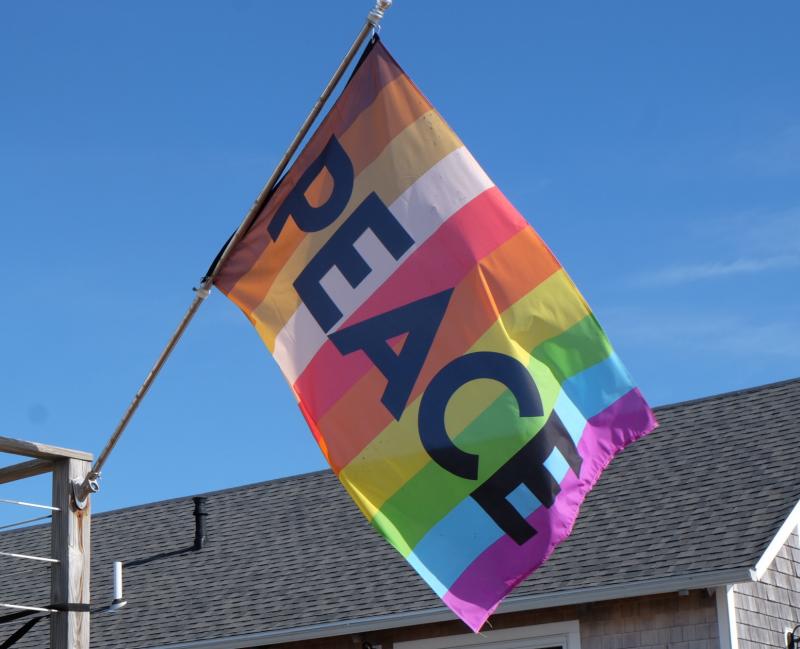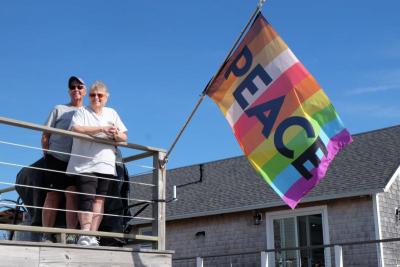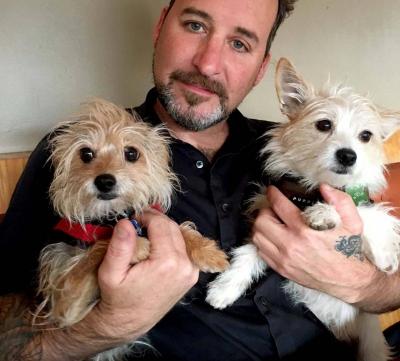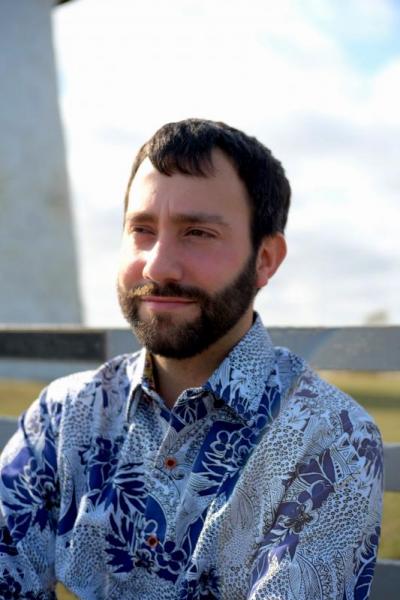Residents past, present recount Tri-Town LGBTQ+ history
Bev Baccelli and Liz DiCarlo, both 71, are married and live in Mattapoisett, a community where they say it’s accepted to be out, to have a spouse and to raise a family.
Baccelli grew up in New Bedford, so she has seen the changes in the local community. But it wasn’t always that way.
When she searched in her high school’s library card catalog as a sophomore, her curiosity led her to look up “homosexuality.”
The card read “see deviant behavior.” Baccelli closed the cabinet, and moved on.
“Nobody talked about [being gay,]” she said, adding that it took a long time for her to figure out she was a lesbian.
But since then, she said there has been an “amazing” 60 year progression in Tri-Town to where it is accepted for people to be out and freely express their sexuality and gender identity.
This LGBTQ+ history month, Baccelli and DiCarlo, David Walega and David Duponte, all with ties to Mattapoisett, recounted the Tri-Town history and progression of being accepted as lesbian, bisexual, gay, transgender, queer, and other gender and sexual idendities (the “+” in LGBTQ+).
This LGBTQ+ history month, Baccelli and DiCarlo, David Walega and David Duponte, all with ties to Mattapoisett, recounted LGBTQ+ history in the Tri-Town.
Baccelli first saw her identity as a lesbian in someone else while doing a house evaluation in Mattapoisett with her dad in 1959. It was a work day with her father, so she was in one of her favorite outfits: Dungarees and a flannel shirt. Two women lived in the house and wanted renovations done by her dad’s construction company. When she met the women, Baccelli noticed one of them was wearing the same outfit, plus a hat.
After they left, Baccelli asked her father why one of the women was dressed that way.
His reply is something she remembers to this day: “It doesn’t matter how you dress, it matters how nice you are.”
She said that today coincidentally, a gay couple lives in that same home.
For David Walega, he had to move away to figure out that he was gay in college.
“Growing up here, there was no example of gay people that resonated with me,” Walega said.
He knew from day one that he was artistic and sensitive, but it wasn’t the same growing up.
“Back in the day, you were raised to be a straight person,” he said.
When he came out to his parents in his 20s, they were supportive and open.
“It made them consider that there’s a different way of life,” Walega said.
For Baccelli, It wasn’t until she was 38 and in a marriage with a man that she realized she was a lesbian. After a divorce with her husband (which blossomed into a friendship), DiCarlo and Baccelli moved to Mattapoisett in 1997 and got married in Toronto in 2003.
Since then, they’ve only experienced one incident of homophobia not too long after they moved in.
Other than that, Baccelli said the progression has been “an amazing change” over the last 60 years. And it shows with younger generations.
David Duponte, 32, grew up in Mattapoisett and came out as gay when he was 14.
“Growing up gay was very easy,” Duponte said.
For high school, he attended Old Colony Regional Vocational Technical High School.
Duponte said he was the only openly gay student in his school at the time, but his friends were accepting.
Comments were made here and there, “but it was nothing to go home crying about,” he said.
Baccelli and DiCarlo accredit the paradigm shift to the legalization of same-sex marriage in Massachusetts in 2004.
“Equal marriage gave people the opportunity to talk about loving relationship,” DiCarlo said, adding that the support of straight people in the community for the right to do so was critical.
Today, the two are helping to make the South Coast a queer friendly place through The LGBTQ+ Network South Coast
Recently, Walega, who is a photojournalist and artist, did a portrait series called “Out of the Shadows” for the network. The series tells the stories of young people coming out and what that experience was like.
“I can’t imagine that happening when I was a teenager,” he said.
Now staying with his parents in town during covid, he can see the change as well.
“The Tri-Town seems like a pretty safe and supportive place,” he said.
And for Baccelli, she is already focusing ahead to current issues of equality for all queer people.
“The same understanding needs to be had with being trans,” she said.















